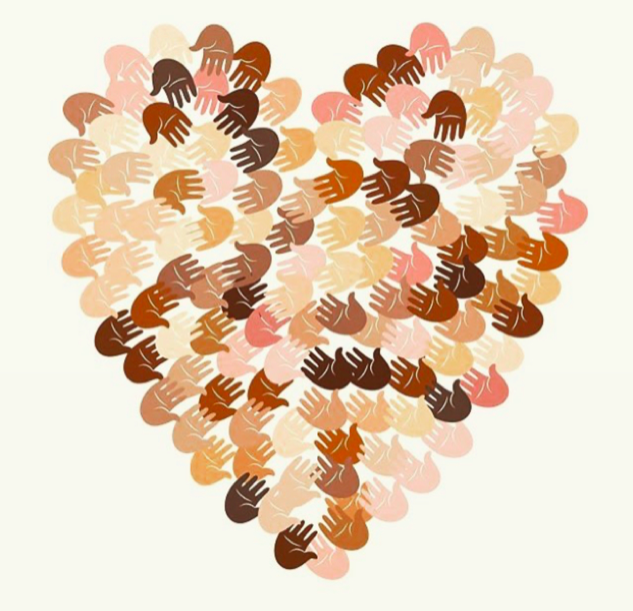Start Where You Are
Antiracist Training from a Dharmic Perspective
“Love and justice are not two. Without inner change, there can be no outer change; without collective change, no change matters.”
“The price of the liberation of the white people is the liberation of the blacks — the total liberation, in the cities, in the towns, before the law, and in the mind. The white man is himself in sore need of new standards, which will release him from his confusion and place him once again in fruitful communion with the depths of his own being.”
“Just like you don’t need to wait until the cravings stop to quit drinking, a white person can drastically decrease their racist behaviors and increase their willingness to undermine white supremacy long before their racist thoughts and feelings subside. If you want – and that’s a big “if” – to change the ways your actions are influenced by racial bias, conscious or not, then increasing your awareness of your bias and decreasing its influence over your behavior is a skill you can fairly easily learn and practice. The low-key discomfort with, and hostility toward, people from other races is extremely pervasive in white culture, and thus very challenging to consciously access. Meditation and mindfulness practices are the keys to the realm of greater awareness. Like Robin DiAngelo’s recommendations for confronting white fragility, meditation-based practices work on the interaction of thoughts, feelings and behavior.”
This training is an invitation to people looking to explore and break out of our gilded cages of fragility, privilege and disconnects, through a guided, structured contemplative process of reading and discussion, meditation, and social engagement.
core reading curriculum
We’ll use a core reading curriculum of books by Black female buddhist teachers, including Rev. angel, Ruth King, Zenju Earthlyn Manuel, Bell Hooks, Jan Willis, and others, supplemented by works by buddhist men of color such as Charles Johnson, Larry Yang and Lama Rod Owens. Additional resources, many of them offered throughout this website, are available, including works by white women and men.
contemplative practice
Contemplative practice, whether through mindfulness, reflective analysis, prayer or simply sitting quietly in a calm, safe place, has been shown to provide the necessary space for thoughts, feelings, reactions and all of the other responses to the courageous process of opening up to our inherited genetic racism. With the fresh breeze of spacious self-acceptance and familiarity, we can acknowledge ourselves without shame, guilt or other triggers that obstruct genuine growth. We can learn to see ourselves clearly, and to love ourselves; loving ourselves, we can see and likewise acknowledge others – even recognizing that the notion of self and other is, like the notion of race, merely a notion, an obstructing and clearly destructive notion.
cultivating beloved community
The third step of “Start Where You Are” is cultivating beloved community, through connection in these challenging times of social distancing, pandemic, uprising and uncertainties. We’ll begin through regularly scheduled Zoom gatherings, facilitated reading discussions alternating with guided contemplation practice. Guest speakers and teachers will join us at times, and over time as social conditions become safer we’ll gather in-person.
If you’re ready, join us in “Start Where You Are” by clicking here and we’ll be in touch soon!
“We need the freedom into which mindfulness invites us — the freedom to not have to follow the unconsciousness, either individually or collectively. We do not have to be someone we are not, just because the world says that is who we should be. We need to remember that it is possible to notice deeply what is happening right now, and understand it with enough wisdom, treat it with the compassion inherent in our humanity, and move into responses and actions that are of benefit as best as we are able. We are called by the voice in our collective hearts to move toward that which lessens suffering and creates more happiness, not just for us personally but for us as communities within a global society and collective world.”
Convener and guide Marc Matheson is a buddhist practitioner and gay cross-culturalist. His privileged white middle class Midwestern American heteronormative upbringing, punctuated by childhood experiences living in Europe and the American South, afforded Marc opportunities to question paradigms. As an adult, Marc has oriented to interracial relationship, progressive politics, community organizing, and convening conversation around race, politics and social action. He has trained with a number of buddhist teachers, most recently with Rev. Angel Kyodo Williams, Larry Yang and Ruth King, at Shambhala, Spirit Rock Meditation Center and East Bay Meditation Center, and in the UNtraining, Beyond the Culture of Separation, and White and Awakening in Sangha programs. Marc lives and works in rural western Marin County, northern California, and is an authorized Shambhala meditation instructor.





